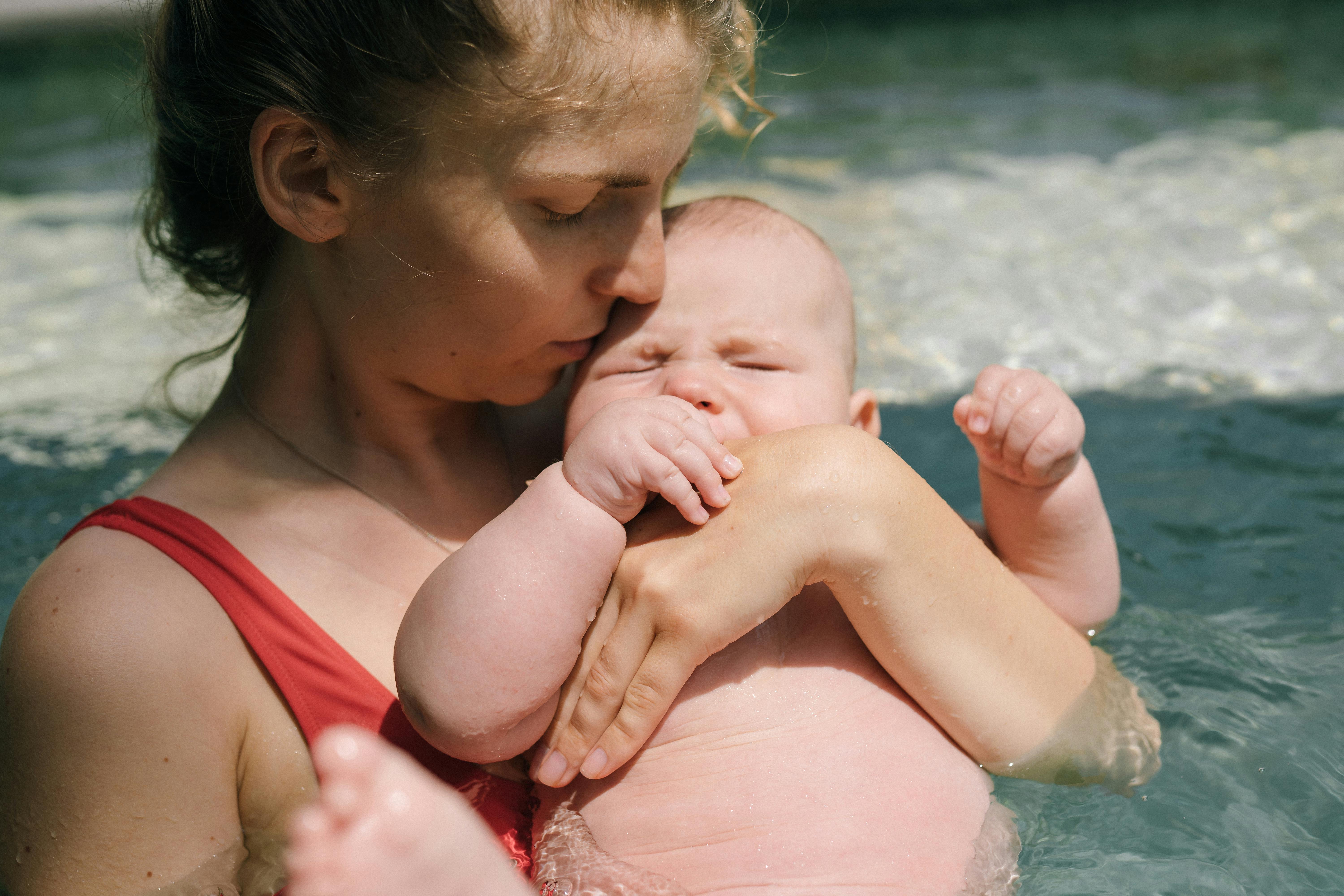Distilled water is a popular choice for infant formula preparation due to its purity. It has been filtered and purified to remove minerals, metals, and other contaminants. However, it is important to understand that distilled water lacks the beneficial minerals and nutrients found in other types of water. For this reason, it is not recommended as the sole source of hydration for infants. In this article, we will discuss the safety of distilled water for infant formula preparation and offer some alternatives that may be more suitable for your baby’s needs.Distilled water is water that has been boiled and then condensed into a separate container, leaving impurities behind. It is free from salts, minerals, and other impurities that are found in untreated water. Distilled water is used for a variety of purposes, including drinking, medical procedures, car batteries, and cleaning.
What Is Infant Formula?
Infant formula is a manufactured food designed and marketed for babies, usually from birth to 12 months of age. It is meant to replace breast milk when mothers are unable or choose not to breastfeed. It is typically made from cow’s milk that has been altered to resemble the composition of breast milk. Infant formula also contains essential vitamins and minerals, as well as additional substances such as fatty acids and amino acids. The quality of infant formula can vary greatly depending on the brand, so it is important to read labels carefully before making a purchase.
Infant formula can be used either as a supplement or a total replacement for breast milk. Its purpose is to provide babies with the essential nutrients they need for proper growth and development. It is important to note that infant formula does not have the antibodies found in breast milk that help protect babies from infection and illness. For this reason, many doctors recommend breastfeeding whenever possible. However, if breastfeeding is not an option, infant formula can be a suitable alternative for providing babies with essential nutrients in their first year of life.
Is Distilled Water Safe for Infants to Drink?
Distilled water has been used for decades to provide babies with a safe and pure drinking water. It is free of minerals, chemicals, and microorganisms that can be found in tap water. While distilled water is considered safe for infants, it should not be the only source of hydration for babies. Pediatricians recommend that infants get their hydration from formula or breastmilk, both of which are rich in essential vitamins and nutrients.
Babies should not drink distilled water exclusively as it lacks the minerals and electrolytes that are essential for their development. Additionally, long-term use of distilled water may lead to mineral deficiencies in infants. To prevent this, parents should seek out an alternative source of hydration such as formula or breastmilk.
Parents should also consider using a filter system on their home’s tap water if they wish to give their infant distilled water. This will help to ensure that any contaminants found in tap water are removed before the infant drinks it. Additionally, parents should not give their baby distilled water from plastic bottles as these can contain BPA and other endocrine disruptors which may
Boiling Distilled Water for Infants
Boiling distilled water is one of the safest and most effective ways to make it safe for infants to drink. Distilled water has been purified through a process of heating and cooling, removing all impurities and contaminants. Boiling distilled water further purifies it, killing any bacteria or viruses that may be present. Boiling distilled water also removes any residual chlorine that may be present, which can be harmful to infants.
The boiling process also helps to make the water more palatable by removing unpleasant odors and tastes. This is important for infants, who can have sensitive taste buds and need clean, pure water to stay healthy. Boiled distilled water is also free from heavy metals like lead and copper, which can be dangerous for infants who are still developing their immune systems.
It is important to note that boiling distilled water does not remove all impurities or minerals from the water. However, this does not pose a risk for infants as their bodies already contain all the minerals they need in order to grow and develop properly. Boiled distilled water can provide an ideal drinking option for infants, as it is free from most contaminants and provides
Should Infants Be Given Distilled Water in Their Formula?
When preparing infant formula, parents may consider using distilled water as this does not contain any minerals or other contaminants. Distilled water is created through a process of boiling and condensing the water vapor, which leaves behind any impurities. Although it is generally believed that distilled water is safe for infants, there are certain considerations that should be taken into account before using it in formula.
One important factor to consider is that distilled water does not contain any minerals, such as calcium and magnesium, which are important for a baby’s development. While these minerals can be supplemented through other sources, such as fortified formula or foods, it is important to make sure that the baby is receiving adequate amounts of these essential nutrients.
Another important factor to consider when using distilled water in infant formula is its lack of fluoride. Fluoride helps to protect teeth from decay, and many municipal water supplies are treated with fluoride for this purpose. If parents choose to use distilled water in their baby’s formula, they should ensure they are providing an alternative source of fluoride to ensure their baby’s teeth develop properly.

Adding Minerals to Distilled Water for Infants
Adding minerals to distilled water is a popular way of making it safe for infants to drink. Distilled water is water that has been purified by a process of distillation, which involves boiling the water and then collecting and condensing the steam into a clean container. Since distilled water lacks minerals and other compounds, it can be difficult for infants to digest. Adding minerals helps make the water more nutritious and easier to digest for babies.
Minerals can be added to distilled water in various forms, such as drops or powder. Drops are often added directly to bottles of distilled water; however, this method may not provide enough minerals for infants. Powdered minerals, on the other hand, provide a more concentrated source of essential nutrients that infants need. The powder is usually mixed with distilled water before it is given to babies, ensuring that they get an adequate amount of nutrients.
It is important to consult with your pediatrician before adding any type of mineral supplement to a baby’s diet. Some supplements may contain vitamins or other ingredients that are not suitable for infants. Additionally, it may be necessary to adjust the amount
Are There Any Benefits of Using Distilled Water in Infant Formula?
Using distilled water for infant formula is a controversial topic, and opinions vary on the matter. Some parents and medical professionals believe that using distilled water is beneficial for infant formulas, while others do not.
The main benefit to using distilled water in infant formula is that it has been treated to remove any harmful substances that may be present in regular tap water. This includes chemicals, minerals, and other contaminants. As the National Institute of Health states, “Distilled water is free of dissolved minerals and gases and therefore will not contribute to mineral or gas buildup in the body.” This means that infants who consume formula made with distilled water will not be exposed to any potentially dangerous substances.
Another benefit of using distilled water in infant formula is that it can help reduce the risk of developing allergies or sensitivities later in life. Studies have shown that infants who are fed formula made with distilled water are less likely to develop allergies or sensitivities to common food items such as milk, eggs, wheat, soy, peanuts, tree nuts, fish, and shellfish.
Finally, using distilled water
Are There Any Risks of Using Distilled Water in Infant Formula?
Using distilled water in infant formula can pose some risks to your baby’s health. Distilled water is purified by boiling it and then condensing the steam into a clean container, which eliminates many minerals that may be beneficial to a baby’s health. Without those minerals, such as calcium and magnesium, babies may not get as much nutrition from their formula. Additionally, using distilled water can lead to an imbalance in the electrolytes in infants’ bodies, which are important for hydration and for controlling the body’s pH balance.
Distilled water can also cause mineral deficiencies over time. Minerals like calcium are essential for proper growth and development, so not getting enough of them can have serious effects on a baby’s health. It is also important to note that many infant formulas are made with added minerals, so using distilled water can negate the benefits of these added minerals.
Finally, using distilled water may also lead to higher levels of sodium in babies’ bodies. This is because some distilled waters contain high amounts of sodium due to the process used

Conclusion
Distilled water is generally safe for infants and can be used in infant formula. It is a healthy choice that is free of impurities and contaminants, while also being naturally low in minerals. However, it is important to note that distilled water does not contain any essential minerals or electrolytes, so it is important to supplement infants with a multivitamin if using distilled water as the main source of hydration. Additionally, parents should consult with their pediatrician before using distilled water for their infant’s formula or hydration needs.
Overall, distilled water can be a safe choice for your infant’s hydration needs. Its purification process removes all contaminants and impurities and can be used to make infant formula. However, it does not contain essential minerals and electrolytes, so parents should supplement their infant’s diet appropriately. In any case, it is always best to consult with your pediatrician about the best choice of hydration for your infant.

